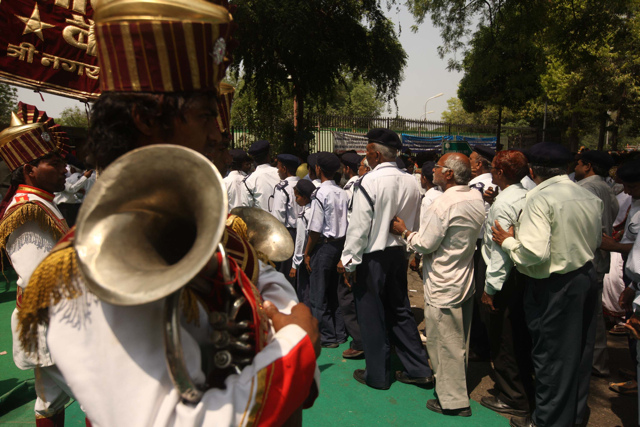
Five years later, the euphoria of the Dalit-Brahmin alliance that catapulted BSP to power in 2007, is diminished. Dalits, especially, feel the deal has favoured the Brahmins more. This tapestry which was stitched in 2007, may be frayed now, but still holds the key in 2012.
In an inner lane in Lucknow where Kayasthas dominate a residential colony, Election Commission officials are walking up and down looking for hoardings and banners of political parties and ordering them to be taken down. The indigo graffiti of the Bahujan Samaj party on the walls is not on their agenda yet. The graffiti is for the candidate of the constituency, a Muslim better known as "Pandit ji", and who writes that useful epithet in brackets after his name.
Welcome to the Uttar Pradesh Assembly Elections, 2012. It's a spectacle without a spectacle: the Election Commission's total crackdown is matched by the political parties' strange lack of enthusiasm. They have all been uncharacteristically late in declaring their candidates. Travelling in January 2007, the festival of election was in the air even though the election was three months away. This time, everyone was taken aback by the Election Commission bringing forward the election from April to February, and voters are still making up their mind.
The tepid mood is shared by Hriday Narain Dixit, a Bharatiya Janata Party (BJP) leader. This is the first time after several elections that he won't be contesting. Dixit lives in the OCR building, famous for housing legislators, and infamous for suicides from its higher floors. In a modest house he welcomes us, apologetic about the shortage of chairs. He is himself spread on a couch, behind him a BJP banner and the rest of the room adorned with three new calendars in which Hindu gods and goddesses occupy more space than the list of the months ahead. I ask him what the BJP's chances look like. Before he can answer, he gets a phone call. He tells the caller that no party has an absolute hold among the Other Backward Classes, the peasant castes—not even Mulayam Singh Yadav of the Samajwadi Party (SP).
His hold on his fellow Yadavs has declined, he says, adding that be it Bharat or Misr, India or Egypt, a community's political character changes. Social mobility gives it independence and reduces the need to rally around a leader of their own community. "This is the principle of society, from what I have read," he says.
"See Brahmins, for example," he continues on the phone. "Even a poor Brahmin is high class by virtue of his caste. He does not need a leader. He is already number one. How can he consider anyone else a leader?"



